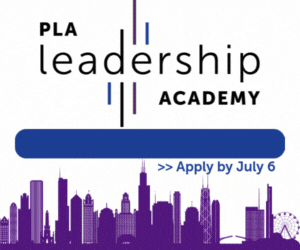Reading Beyond Your Own Borders
What is the purpose of a book? Is it to please the reader? To educate the reader? Challenge? The best books do all three, especially educate and challenge us as readers. For the newest head of the National Book Foundation, books are the best way to educate and challenge us not only as readers but as citizens of the world.
“My life is small,” Lisa Lucas told National Public Radio’s Lynn Neary on November 14,”and I think books are a way to make your life larger.” Neary’s interview with Lucas took place just days before the National Book Awards, which honored four works that speak to the issues on the minds of much of the nation’s populus. For Lucas, literature is more than just a means of telling a story. In the interview, she points out that books can be bridges over divides, such as the political ones dividing the country today.
Mental Borders
Whether we intend to or not, many of us put up mental borders when we choose literature. We have our favorite genres and authors, and we often choose not to read anything other than those chosen few. I dislike many “popular fiction” authors and often don’t read them. Even writers have their own genre borders. Is it fair that I dislike these books since I honestly cannot say I’ve ever read more than two or three? Lucas would likely say it’s not. “We need to be reading across the lines we’ve drawn in our lives,” she said to Neary.
When I taught high school, I put up mental borders around certain pieces of curricula. I loved teaching The Princess Bride, but I disliked teaching Romeo and Juliet to high school freshmen because I believed that it glorified teenage suicide. In reality, astute readers see it for what it is: a cautionary tale about that very thing as well as fate, chance, even recklessness.
Mental borders are found in all aspects of our lives. My graduate school cohort was made up almost entirely of members of the school’s affiliate church and citizens of the United States. However, there were a few international students and some like me who are not religious. The program, and the literature we read, served to motivate us to not only finish our masters degrees but seek out perspectives other than our own. For example, those of us who had mental borders about the politics and economics of China had those borders broken down by a Chinese classmate.
Some classmates had other mental borders broken down by the textbooks we read in our classes, ones they otherwise wouldn’t have read, like Why Nations Fail by Daron Acemoglu and James Robinson. Admittedly, if I hadn’t been assigned the book, I likely wouldn’t have read it, though I was a former English and History teacher myself. This global perspective, one of three major trends in higher education today, was one of the keys to making a difference in how we thought as students and citizens.
Books are Eternal
Lucas encourages people to read outside the box, as it were. When referring to this year’s political climate, Lucas pointed to last year’s National Book Award nonfiction winner and one of this year’s nonfiction finalists, Between the World and Me by Ta-Nehisi Coates and Strangers in Their Own Land by Arlie Russell Hochschild.
The former is about what it means to be black in America, while the latter is about Tea Party members living in Louisiana’s bayou country. Lucas suggests that her New York City friends and colleagues pick up Strangers in Their Own Land and Hochschild’s subjects read Coates’ piece.
While Lucas’ message seems serious in nature, she also wants reading to be fun. She believes it will remain the dominion of the book, not social media, though she is an active social media user herself. Lucas points to the differences between printed media and social media, and she’s not alone in preferring paper over digital. Social media are transient, while print media are tangible.
The same comparison can be made for our mental borders when confronted with books that challenge us: those ideals become transient when met by the tangible story of another human being.
Tags: Importance of reading, mental borders, National Book Awards, National Book Foundation







